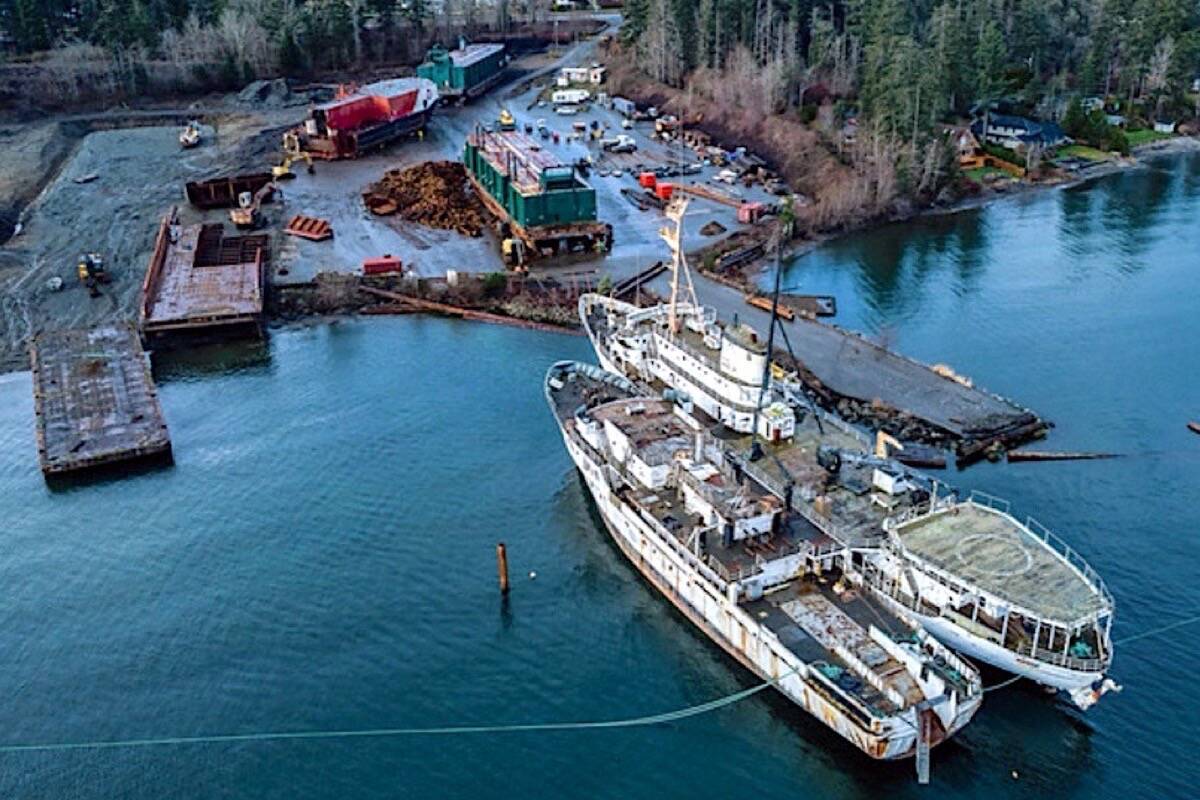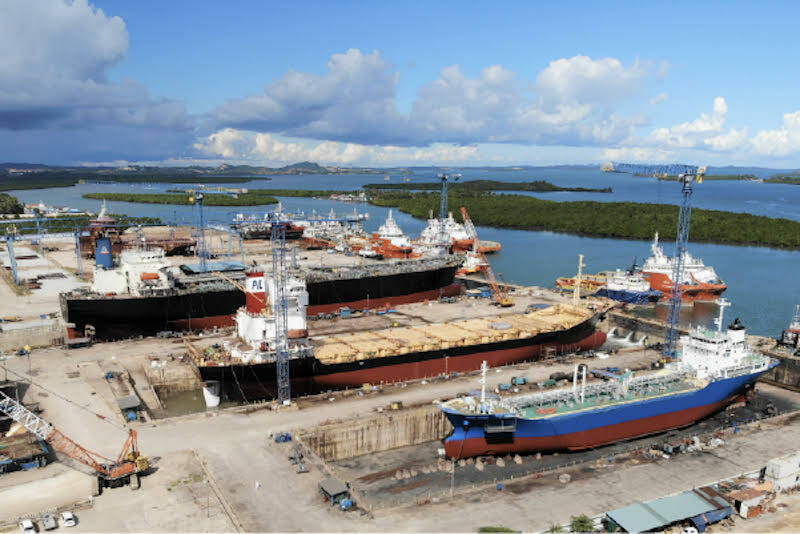A group dubbed Concerned Citizens of Baynes Sound (CCOBS) is pressing the regional district for answers as to why shipbreaking is being allowed on the water near Union Bay.
The business involves dismantling an obsolete vessel for scrapping or disposal, conducted at a drydock. CCOBS says shipbreaking is known as one of the most dangerous and hazardous industries, in terms of risk to human and environmental health due to asbestos and other materials on old vessels. The group concurs with the K’ómoks First Nation who say the operation is “an environmental disaster waiting to happen” in Baynes Sound.
READ: K’ómoks First Nation responds to ship-breaking activity in unceded territory
In a Monday presentation to the Electoral Area Services Committee, group member Ray Rewcastle said Canada has no specific shipbreaking regulations like the U.S., which has strict federal standards.
CCOBS has partnered with the Belgium-based NGO Shipbreaking Platform, a global coalition that has been fighting for the rights of workers in the shipbreaking industry for more than a decade. Due to problems with the industry, he said the European Union enacted rules and accreditations for compliance shipbreaking. To date, he said there’s only one EU-approved accredited facility in Brownsville, Texas.
“When contacted, they were quite surprised that we would be allowing an operation like this to be in place on the west coast of British Columbia,” Rewcastle said. “Shipbreaking is considered hazardous waste.”
A photo illustrated the local facility where two ships are beached. One is being carved up on the foreshore, which he said violates the Ministry of Forests (FLNR) foreshore lease.
“As you can see, it’s a mess,” Rewcastle said, noting steel strewn around the premises, and a large excavation of land. “Was that allowed per the CVRD bylaws and the FLNR foreshore lease? It’s the wrong way of doing it. There is no safe way to conduct shipbreaking in Baynes Sound.”
Rewcastle said the NGO Shipbreaking Platform has reviewed the situation and agrees the operation needs to be shut down.
CCOBS encourages the CVRD to appeal to senior governments to utilize their resources and expertise.
“The operator of this site appears to be well funded and aggressive, necessitating the CVRD to strengthen their expertise with all available resources,” Rewcastle said.
Union Bay Industries (UBIL) owns the property. They lease it back to Deep Water Recovery (DWR). CCOBS is asking the CVRD and FLNR to issue the companies a Cease and Desist Order for operations at the site, and for non-compliance activities on the foreshore lease. The group also asks for UBIL/DWR to remove all remnants of the operation and to remediate the site, and to send vessels to an accredited shipbreaking site at a heavy industrial deep water marine port.
Alana Mullaly, general manager of planning and development, said CVRD staff is working with DWR to resolve the non-compliance issue on the site. The agent, she added, is operating out of the U.S. with a Union Bay address.
“So we’re dealing with a foreign company that has no ties in the community,” Area C director Edwin Grieve said. “We’ve been dealing in good faith for a number of months, and there’s no progress. And it looks like senior government are just playing footsies on this one, and kicking it down to the lowest level of government, which of course is us.”
Grieve noted that Union Bay is within the constituency of Mid Island-Pacific Rim MLA Josie Osborne, who is Minister of Municipal Affairs. He asked if her office has communicated with the province. CAO Russell Dyson said her office has responded to questions from citizens.
Area A director Daniel Arbour thinks the questions raised by CCOBS are worthy of responses from staff. Dyson said the questions will be answered in a staff report.
“I appreciate the work of the delegation,” Arbour said.
Mullaly said there are three options for non-compliance. A person can stop the use, apply to amend a zoning bylaw (which requires a public hearing) or obtain a temporary use permit (TUP). The latter can be issued for a maximum three-year period, with an option for an additional three years.
The district seems to have a non-compliant use in the industrial marine zone, added Mullaly. She said the CVRD has asked the agent to advise of their plan but has yet to hear back.
Arbour realizes that a TUP or rezoning is not a popular option with some Union Bay residents. However, as elected officials, he said directors need to be impartial and open to the idea of a possible sound enterprise that meets standards, or to at least allow the company to present its case.
reporter@comoxvalleyrecord.com
Like us on Facebook and follow us on Twitter
Comox Valley Regional DistrictEnvironment


